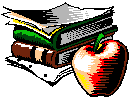 Rethinking
The Academy:
Rethinking
The Academy: Rethinking
The Academy:
Rethinking
The Academy:As Mick Doherty writes in his editor's note to the first volume of Kairos:
This journal is (or, more accurately at this point, aims to be) a resource for discovering and discussing the issues that face teachers of writing in hypertextual environments. . . . Any hypertext which claims to end with a finished product - like "issue 1.1" - is obviously compromising some of the possibilities afforded by interactive electronic media.
But . . . we find demands at various levels. There are demands from the traditional academy and its grizzled tenure-promotion process. What counts? Has it been peer-reviewed? Where was "it" (the final text) "published" (where it can be viewed)? Archiving hypertexts and maintaining "version control" is a bow to the fact that scholars in hypertextual studies still need something to "show" on their vitae.
There are demands from our own peers and the many sociopolitical and personal stances we bring to the pedagogical table. Collaboration does not necessarily demand compromise; but perhaps compromise can, at times, foster collaboration. An interactive non-blind peer review like we are trying to "invent" is our nod to this demand.
Finally, and most exciting, there are demands born of the creative instincts of the many, many people involved in "collaborating" on "publishing" this journal. Authors - though some have rejected that label - of hypertexts have startlingly (and refreshingly) disparate ideas about what should matter to teachers of writing. Our conversation, our dialogue, our collaboration will result, three times a year, in a "product" - a nod to the demands of tradition.
Last Modified: August 2, 1996
Copyright © 1996 by Keith Dorwick